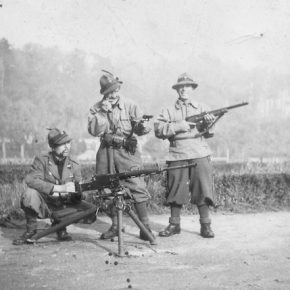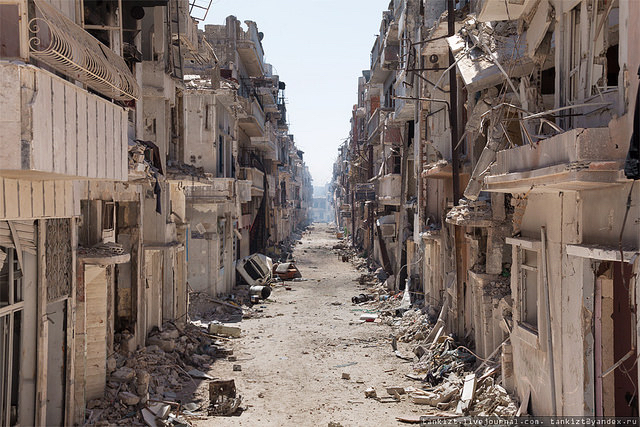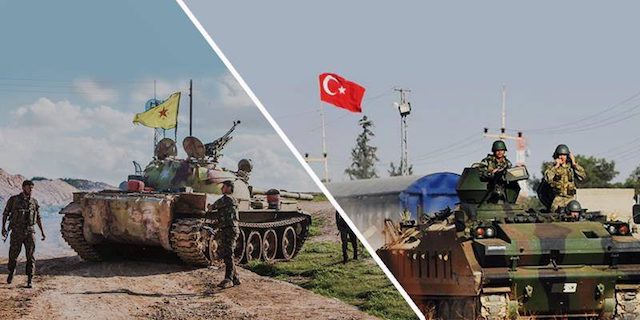Muhamed of Essafiyeh was a stevedore. His shoulders were broad and his back was solid, and ropes were slung across them. He had come from the Horan with eyes that were full of pus and with sacks which he used as clothes, which were covered with the green mold.
He wore sandals that were made of the tires of cars, which was a sign that he had crossed the Jordan once before, because there were no tires in the Horan, as there were no roads, only trails, and those were for the horses, camels, and donkeys, and for those who crushed the brown land with their feet. Cars, there were none.
But the pus was new and so were the sacks, and his skin was a grey colour. And he still had his tire sandals because there was the smooth surface of the solid concrete under his feet, which burned when the sun shone.
Muhamed of Essafiyeh hailed from the mountains where there were sharp stones and slopes which made his sandals slip sideways so that he walked on a half barefoot, the sole of whose feet was used to the touch of the sharp stones of Horan.
When not in the warehouses or at the water’s edge loading ships, he was in Hart-El-Tanak where, as a Horani, he also had a steel shack. His shack was not as roomy as all the others. But the bar that was slung across the door was as heavy as the bars that were slung across all the other doors, and the lock that fastened the bar at the one end was silvery and shiny. It was heavy and it looked like one lock within another.
It was true that he could not stand up in the shack and that it had only one door. But the uneven floor was covered with straw which he had taken from cases in the warehouses that had slid off of ships and were forced open. And then there was the lock, the only one of its kind in Hart-El-Tanak. The Horani was proud.
Then, when the rains of the night stopped, and the sky cleared, and became almost as blue as the sea, and stray clouds crossed from one horizon to the other, Muhamed sat on a case rubbing his bare heels against the moist, white wood.
The Horani looked to the East where the hills facing him were dark but their edges were golden and above them burst the rays of the sun and he could feel their warmth on his forehead and he knew that his eyes were shining. There, across those hills, was the Horan.

Sama Al-Rousan came first and then Al-Hami and then, along the iron rails that led to the Hijaz, was Essafiyeh. And Muhamed tightened the rope around his shoulder and he looked at the rolling door of the warehouse and he thought of the huge lock that was on it when it was closed. And he pressed against the tip of his cloth belt because in a knot, there, he had the shiny silver pieces which made him spend much time adjusting the folds of his belt as he rose in the morning. There had been much work that winter, the loading and the unloading of the orange cases by day or by night, because the trains came into the harbor, and with them the many cases.
Then Sama Al-Rousan appeared to him again; the clay houses that seemed to have grown out of the dusty plain that stretched between the river and the foot of the:; mountains, and the green, mixed barley and wheat that grew on the flat roofs of the brown, earthen houses. Then he saw Al-Hami, with its one-roomed stone houses resting against the hillside and the small flat terraces that surrounded the houses, where the grindstone and the jars were kept and from where the earthen ovens sent up the smoke and the smell of burning manure. Because the Horan had no wood and the only trees there were oaks. They were holy and there were rags and ribbons on them for the sick.
But he did not think of Essafiyeh because by the time the sun would have set thrice and the red glow would have died in the west, across the black that was the sea, he knew that he would be climbing from the trail along the winding river to the flat land above, near where the iron bridge was and that then he would follow the rails until he reached the path that turned left. He would then walk beside the path, not in it, but at the edge of the ploughed fields that had absorbed the waters of the sky for the whole winter.
With his bare feet, he would break through the crust that had formed after the rain and there would be the fresh, moist earth underneath because on reaching the plateau he would have taken oft his sandals, tied one to the other, and then hung them over his shoulder.
Then, in front of him, against the black of the night, would appear, almost within the reach of his hand, lumps of black that would be blacker than the night. And he would know that they were the houses of Essafiyeh.
Then, the dogs would begin barking at him in their hoarse voices, endlessly, as if he were the moon, and the women would put their heads out. And the whites in their eyes would shine in the darkness.
Photographs courtesy of Library of Congress and Khizer Hayat. Published under a Creative Commons license.
![Palestine, early twentieth century. [Library of Congress]](http://sc.joelschalit.com/wp-content/uploads/2017/04/horse-copy.jpg)




